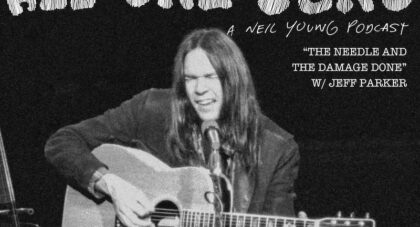Comradely Objects is every bit as mathematical as it is melodic, and as already covered artfully here at AD by Brent Sirota, it is arguably the crowing achievement of the Horse Lords cannon. Fresh on the heels of their latest release, we caught up with guitarist Owen Gardner and bassist Max Eilbacher to discuss recording in lockdown, relocating to Germany, weaponizing the avant-garde, Cornelius Cardew, and what happens when lyrics fail . . .
Only the good shit. Aquarium Drunkard is powered by its patrons. Keep the servers humming and help us continue doing it by pledging your support.
To continue reading, become a member or log in.


